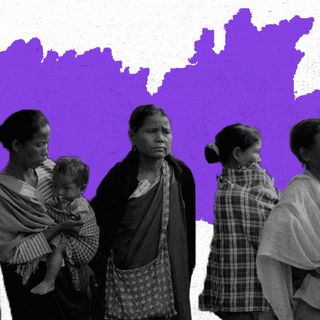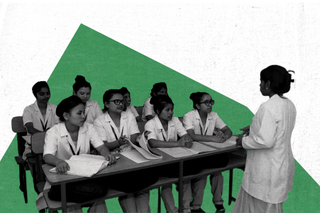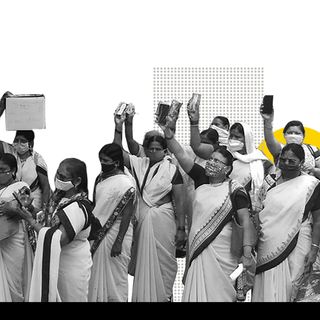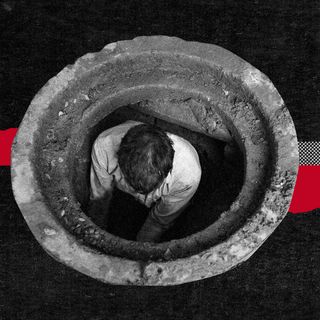
Disability Rights Activists Oppose ‘Discriminatory’ Clause in Nursing Schools
The Indian Nursing Council has restricted 5% reservation in nursing courses only for those with lower limb disability.

India’s apex nursing council recently floated a clause for admissions into nursing courses. It restricted 5% seats for persons with disabilities — but only for candidates with a lower-limb disability and that too for those with 40-50% disability. Health professionals along with disability rights activists have called the decision “discriminatory” and “unfair.”
The Indian Nursing Council (INC) regulates decisions for nurses and nurse education in the country. The reservation applies to Bachelor of Science (B.Sc) Nursing courses, admissions for which is done through the National Eligibility Entrance Test (NEET). In addition to this, the National Testing Agency last month issued a notice to NEET aspirants; the notice mentioned that only people with locomotor disability to the tune of 40-50% will be allowed under the ambit of reservation for each nursing program. Professionals have noted the reservation clause will debar aspirants with upper limb disabilities, or disabilities of any other extremity, from sitting for NEET to be conducted on September 12.
“The worth and uniqueness of future nurses with disabilities have been reduced to their lower limbs and 50% of disability,” tweeted Doctors with Disabilities: Agents of Change, a pan-India group of health professionals.
The group wrote to the Ministry of Health & Family Welfare, and Department of Empowerment of Persons with Disabilities last week to demand a repeal of the clause. The letter notes that the “unethical” guidelines will prevent people from entering the nursing field. They also urged the officials to include people with disabilities while framing new guidelines and include disability competencies in the new curriculum.
“There are many applicants with disabilities who want to go into either medical or nursing fields. Criteria should not be specific to lower and upper disability,” Satendra Singh, founder of Doctors with Disabilities: Agents of Change, told Gaon Connection.
Related on The Swaddle:
Why Disability Activists Argue Against Labels Like ‘Differently Abled’
The Indian government recognizes 21 disabilities as of 2016 (expanded from 7) after the passage of the Rights of Persons with Disabilities Act (RPDA) in 2016. This should have added disabilities like upper limb disabilities, dyslexia, low vision, dwarfism, hearing impairment, thalassemia, hemophilia, sickle cell disease, and acid attack survivors, among others, to the reservation policy. “The Act lays stress on nondiscrimination, full and effective participation and inclusion in society, respect for difference and acceptance of disabilities as part of human diversity and humanity, equality of opportunity… to preserve their identities,” Choudhary Laxmi Narayan and Thomas John wrote about the RPDA in a paper.
Experts note the current restriction also violates requirements set by officials. The INC comes under the ambit of the Union Health Ministry; the ministry had allowed people with locomotor disabilities to enroll in MBBS even if their disability percentage was 50-70%. In a 2009 notification to the Supreme Court, a committee had also recommended expanding disability percentage for reservation from 40% to 70%.
The restricted scope of the reservation will prevent disabled nurses from participating in the healthcare workforce and also add to the prejudice faced by disabled people. As Singh noted, “This is not a superhuman field. We need compassionate caregivers.”
Health professionals and activists note the importance of reservation applying to people of all disabilities. “Nursing as a profession embraces the need to avoid discrimination, yet disability as an equal opportunity issue is relatively neglected in nursing. Nursing has a moral, professional and, in some countries, a legal responsibility to promote disability equality in the provision of nursing services,” nursing officer Monika Dhankar told The Hindu.
The INC notification not only discriminates against people with other disabilities but also dismisses the social role disabled nurses play. The reservation policy in nursing admissions reflects the social welfare notion of disability as a human rights issue. In the end, the issue speaks to disability equality. “Adoption of the social model of disability in nursing practice, education, and research as a strategy to challenge discrimination should be seriously considered,” Dhankar noted.
The demand for a wider scope of reservation also includes that of inclusion. Any policy about people with disabilities must be anchored around the concerns and preferences of those most affected.
An important judgment in 2021 (Dr. Vikash Kumar Vs UPSC) summarizes the need for immediate action: “When competent persons with disabilities are unable to realize their full potential due to the barriers posed in their path, our society suffers, as much, if not more, as do the disabled people involved. In their blooming and blossoming, we all bloom and blossom.”
Saumya Kalia is an Associate Editor at The Swaddle. Her journalism and writing explore issues of social justice, digital sub-cultures, media ecosystem, literature, and memory as they cut across socio-cultural periods. You can reach her at @Saumya_Kalia.
Related


Anganwadi Workers Return 80,000 Faulty Smartphones Given for Data Collection
